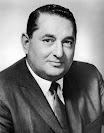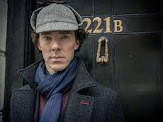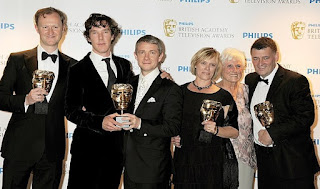Page views : 1483
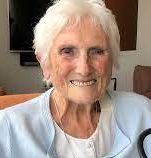 Beryl's story is one where, for example, her entrance into the world of show business was completely unintentional and only happened as a favour to a friend. Once in that world, from the 1950s on, she transformed, more or less, everything that she touched. What is remarkable is, that working in a fiercely competitive and doggedly male-dominated industry, she changed it without it ever changing her. Deceptively 'ordinary' in speech and appearance, she was in fact, 'extraordinary' in the skill with which she executed her decisions and innovations, which time and again began with her saying to herself : "That sounds quite an interesting thing. I'll have a go at that". Cumulatively, these innovations helped shape the TV industry that Britain has today and as a prolific producer, for over fifty years her programmes to thrilled and entertained millions of viewers.
Beryl's story is one where, for example, her entrance into the world of show business was completely unintentional and only happened as a favour to a friend. Once in that world, from the 1950s on, she transformed, more or less, everything that she touched. What is remarkable is, that working in a fiercely competitive and doggedly male-dominated industry, she changed it without it ever changing her. Deceptively 'ordinary' in speech and appearance, she was in fact, 'extraordinary' in the skill with which she executed her decisions and innovations, which time and again began with her saying to herself : "That sounds quite an interesting thing. I'll have a go at that". Cumulatively, these innovations helped shape the TV industry that Britain has today and as a prolific producer, for over fifty years her programmes to thrilled and entertained millions of viewers.
https://www.youtube.com/watch?v=N1Lv0HXvMjU&t=1m53s

 Beryl, who has died at the age of 90, was born in the Spring of 1931 in the town of Croydon, Surrey, the daughter of Elsie and Frank Johnson, who was an engineer and when the Second World War broke out, eight years later, was enlisted to work in the local munitions factory. Beryl recalled the aerial bombing in 1940 : "We had a shelter in the garden, went to bed every night in the shelter and then came the day when there was the doodle bugs and you used to watch them coming to see them coming making that funny noise and the minute the noise stopped that was when you had to dash to the shelter because it was going to land somewhere in a minute".
Beryl, who has died at the age of 90, was born in the Spring of 1931 in the town of Croydon, Surrey, the daughter of Elsie and Frank Johnson, who was an engineer and when the Second World War broke out, eight years later, was enlisted to work in the local munitions factory. Beryl recalled the aerial bombing in 1940 : "We had a shelter in the garden, went to bed every night in the shelter and then came the day when there was the doodle bugs and you used to watch them coming to see them coming making that funny noise and the minute the noise stopped that was when you had to dash to the shelter because it was going to land somewhere in a minute".

Given the intensity of the bombing, witness the fact that 1,338 high explosive bombs were dropped on Croydon between 1940 (link), Beryl and her sister were evacuated to the market town of Tring in Hertfordshire, where she said they "struck lucky" because they : "Stayed with family where the father was a butcher and one daughter going out with American colonel and I had ice cream, which I’d never had." Used to the wartime ration of one egg a week, the nine year old Beryl said she went to the larder and saw : "A whole bucket of eggs. My eyes came out on sticks". She said : "We stayed there for three months and got very homesick and asked if we could go home and the night we went home was the worst bombing of the War. I remember that night because we were quite near a big factory that made margarine and the bombs dropped on that and it sizzled. You could hear it sizzling in the air".

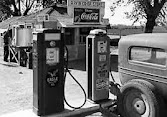 After taking her 11+ exam, Beryl gained a place at the local Mitcham County Grammar School for Girls in 1942 and after the War ended in 1945, the following year, she left school at 15 and started a secretarial course. Her father now ran a petrol station in Mitcham and Beryl worked the pumps in her spare time. She recalled : "I used to go and help and get a bit of pocket money doing it and I felt ever so important I must say".
After taking her 11+ exam, Beryl gained a place at the local Mitcham County Grammar School for Girls in 1942 and after the War ended in 1945, the following year, she left school at 15 and started a secretarial course. Her father now ran a petrol station in Mitcham and Beryl worked the pumps in her spare time. She recalled : "I used to go and help and get a bit of pocket money doing it and I felt ever so important I must say".

She now followed a secretarial course for a year and at sixteen and in her first full time job she said : " I was secretary for a shipping firm. My ambition was to be a very good secretary and I wanted to get married, get a house and have children". She planned to marry Melvin Vertue, who she had met when they were both fifteen and he was a pupil at the Boys' Grammar School. Another pupil at the Boys' School, who she got to know, a friend of Clements, was Alan Simpson. He was two years older than her and was working as a shipping clerk when he contracted life-threatening tuberculosis when he was seventeen and was admitted to Milford Sanatorium near Godalming in Surrey. There he spent 13 months and ran the hospital radio station and wrote and performed live radio shows (right), with another patient, Ray Galton (left), from their studio in a laundry cupboard on F Ward. Beryl often made the 72 mile round trip to visit him there and recalled : "He met his writing partner Ray Galton in there. They wrote for the hospital radio".
Beryl and Clements were married at the age of twenty with plans to emigrate to Canada and she later said that : "In an ideal world he would have loved to have been a farmer". Her life came to an abrupt halt when at the age of twenty-three she contracted tuberculosis and was moved to the Ventnor Hospital, the sanatorium on the Isle if Wight, where Alan Simpson now visited her with Ray Galton. They were both now writing scripts for BBC Radio's vehicle for the comic, Tony Hancock and she said : "l had visited them and so now that I had TB they came to visit me. It was extraordinary that we all got it". 
 Alan and Ray had formed had formed a company, 'Associated London Scripts', with the comics, Eric Sykes and Spike Milligan and contacted her because they were looking for a secretary. Beryl, still recovering from TB, was working for a local insurance company in Eltham and did not fancy an hour-long trolleybus ride to work, but she eventually did agree to go for an interview. On the day of her interview made her way to the writers' commune called 'Associated London Scripts', housed in offices over a greengrocer's shop at 130 Uxbridge Road in Shepherd's Bush. She could see the quartet of writers were in dire need of administrative help. The offices were in a mess, ringing telephones going unanswered, papers were being mislaid and most importantly, cups of tea were remaining unmade.
Alan and Ray had formed had formed a company, 'Associated London Scripts', with the comics, Eric Sykes and Spike Milligan and contacted her because they were looking for a secretary. Beryl, still recovering from TB, was working for a local insurance company in Eltham and did not fancy an hour-long trolleybus ride to work, but she eventually did agree to go for an interview. On the day of her interview made her way to the writers' commune called 'Associated London Scripts', housed in offices over a greengrocer's shop at 130 Uxbridge Road in Shepherd's Bush. She could see the quartet of writers were in dire need of administrative help. The offices were in a mess, ringing telephones going unanswered, papers were being mislaid and most importantly, cups of tea were remaining unmade.
The fact that she was unphased by the interview provides some insight into her character. She recalled : "Spike Milligan, who had braces on and no jacket, and I thought that was very odd, he did the interview. Alan Simpson sat on the floor throughout and I thought : 'He’s gone to pot since he’s in show business'. Spike now fired out disconnected questions in a rapid and scattershot fashion : "Where do you live?" "Can you make cups of tea?" "Do you have any brothers?" "What kind of tea do you drink yourself ?" "Do you have any sisters?" "What makes you laugh?" "How good are you at making cups of tea?" "What do you do with the tea leaves?". After Beryl had answered all of his questions, he fell silent for a moment and then, quite suddenly, jumped up and declared excitedly : "Well, I think you'll be perfect for us". Eric agreed, and so did Ray and Alan.


 More would-be writers joined the commune and she recalled : "Johnny Speight, he sold insurance at the time. Terry Nation who came from Wales, who created the Daleks, he was a furniture salesman. So all these unusual people came. I had this big blackboard up and I wrote down their names and who was doing what programme and I didn't do that for very long because you suddenly realised that one or two of them had had gaps - didn't have any programmes. So it didn't seem to be very good idea at all. So I got rid of the blackboard".
More would-be writers joined the commune and she recalled : "Johnny Speight, he sold insurance at the time. Terry Nation who came from Wales, who created the Daleks, he was a furniture salesman. So all these unusual people came. I had this big blackboard up and I wrote down their names and who was doing what programme and I didn't do that for very long because you suddenly realised that one or two of them had had gaps - didn't have any programmes. So it didn't seem to be very good idea at all. So I got rid of the blackboard".
Above the greengrocers she said : "They had little rooms - little cubby holes. They were all typing away and Eric Sykes used to bother me because there were certain deadlines and he was always off playing golf, but I realised afterwards, he was writing the script in his head while he was playing golf and he'd get back and he'd go : "Bash.Bash.Bash.Bash.Bash" and then off he'd rush to the BBC. You had to be there very promptly".

Beryl also said that Spike : "Always seemed to be doing nothing and then do a whole stream of consciousness. He had to edit it slightly, then off it would go. He used to hide away in his room for days. If you knocked on the door he'd just shout : "Go away" and then one day I knocked on the door, because you've got to do something. When I got in the room it was all pitch black with the blinds down. So I lifted the corner of the blind up and I had a bunch of primroses and I said : "It’s springtime". And he came out after that. But he had a tree which he was carving which was in the park and that used to be a bit of a godsend for us - when in doubt they'd say : "Why don't you go and do a bit of work on the tree ?" "
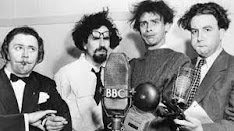 Spike was the chief creator and main writer was of the BBC Radio 'Goon Show' (link) where with Peter Sellers and Harry Secombe, his scripts mixed ludicrous plots with surreal humour, puns, catchphrases and an array of bizarre sound effects. Beryl typed the scripts for the Show from 1951-60 and said : "I used to go to the Goon Show recordings which were in Camden Town on Sundays. Wonderful Wonderful - watching Peter Sellers doing 'Minnie' - waving his throat. Just so funny. So talented. So I think I've been lucky having all that experience".(Left to right : Harry, Michael Bentine, Spike and Peter)
Spike was the chief creator and main writer was of the BBC Radio 'Goon Show' (link) where with Peter Sellers and Harry Secombe, his scripts mixed ludicrous plots with surreal humour, puns, catchphrases and an array of bizarre sound effects. Beryl typed the scripts for the Show from 1951-60 and said : "I used to go to the Goon Show recordings which were in Camden Town on Sundays. Wonderful Wonderful - watching Peter Sellers doing 'Minnie' - waving his throat. Just so funny. So talented. So I think I've been lucky having all that experience".(Left to right : Harry, Michael Bentine, Spike and Peter)




She remembered that friendship and the time when the three of them went on holiday to France with him and his wife Cicely and his mother : "We had such a funny time and that's where I enjoyed him the most. He was very relaxed. We played a silly game of cards with matches for money and he kept saying : "Could you see your way clear to advance me five matches ?" We were just in hysterics. It’s the happiest, I personally, ever saw him". She said : "Then, years later, I was driving and I heard on the radio that he had committed suicide in Australia and I thought : ‘How sad. You went all that way and you had no one with you’ ”.
 The burgeoning success of ALS's television broadcasts was reflected in Alan and Ray supplying the scripts for radio and television comedy series 'Hancock's Half Hour' from 1954 to '61 and TV's 'Steptoe and Son' (link) from 1962 to '65 and Johnny's 'Till Death Do Us Part' (link), starting its ten year run on BBC TV in 1965. Meanwhile, as a mark of Beryl's brilliant virtuosity, she sealed a deal for Terry Nation, the 'Dr Who' writer who created the Daleks that gave him partial copyright on the Daleks when he introduced them in Doctor Who’s second story shortly after the sci-fi series began in 1963 (link). She also blazed a trail by persuading the BBC to venture into programme-related merchandise, resulting in Daleks memorabilia, a 'Hancock’s Half Hour' board game and Steptoe and Son jigsaws.
The burgeoning success of ALS's television broadcasts was reflected in Alan and Ray supplying the scripts for radio and television comedy series 'Hancock's Half Hour' from 1954 to '61 and TV's 'Steptoe and Son' (link) from 1962 to '65 and Johnny's 'Till Death Do Us Part' (link), starting its ten year run on BBC TV in 1965. Meanwhile, as a mark of Beryl's brilliant virtuosity, she sealed a deal for Terry Nation, the 'Dr Who' writer who created the Daleks that gave him partial copyright on the Daleks when he introduced them in Doctor Who’s second story shortly after the sci-fi series began in 1963 (link). She also blazed a trail by persuading the BBC to venture into programme-related merchandise, resulting in Daleks memorabilia, a 'Hancock’s Half Hour' board game and Steptoe and Son jigsaws.
She explained how this came about with the Daleks in her 'matter of fact way', saying : "We used to get the same sort of contract and it had a bit on it which said the rights would go to the BBC and I thought : 'Well they won't know how to do all of that'. So I just, literally, crossed it out and nobody ever questioned it. So that's how he ended up using the markets. Dalek toys, board games, jigsaws". "With a man at the BBC we started the Department which sold things. I hadn't any training for any of this, but I'm quite a practical person, so whenever anything turned up I thought : 'That sounds quite an interesting thing. I'll have a go at that'. Thinking that : 'The worst you can do is fail'. I think a greater failure is that you don't even try".


With perfect self-effacement she said : "It was pioneering, but, at the time, you don't think you're a pioneer. You just think you're doing your job. Because I was just trying to be a good agent and doing what I could to maximise the work. All I thought was : 'Hmm, that's a good idea - if I can't sell something this way, I'll try to sell it that way'. It just seemed at the time like a common sense approach. It turned out in the end, I suppose, to be quite a break though".
Beryl covered stations in Cologne, Stuttgart, Hamburg, Mainz, Munich, Austria, France and Holland. She recalled : "When they did 'Steptoe And Son' (as 'Stiefbeen en Zoon' in 1963) (link), they invited Alan and Ray and me over to Hilversum to see their version of the programme and meet the artists. When we got off the plane we were taken across the runway in a horse and cart and then straight into a press conference with this barrage of cameras and a huge crowd of journalists. We hadn't encountered something like that before - it was really splendid. Suddenly, it seemed, the shows were the stars and the writers were in charge".
Beryl came back to London from Hilversum more convinced than ever that her new policy held huge potential. She said : "That experience in Holland gave me the idea that you could do this - sell formats abroad - not just every once in a while, with special cases, but actually as part of your usual service for a show. So after that I thought : 'I'll try it in America'. And I did".
When the impresario Robert Stigwood, manager of rock bands 'The Cream' and 'The Bee Gees', bought out Eric's and Spike's controlling interest in the 'Associated London Scripts' in 1967, he formed a production arm, 'Associated London Films', with Beryl as Executive Producer. Her first assignment involved selling the film script, 'The Spy With a Cold Nose' to the American producer, Joe Levine.
Robert Stigwood next to Beryl, Robin Gibb next to Frankie Howard at the back, Barry and Maurice Gibb and Ray and Alan standing on the right.
This involved making her first trip to the USA to meet Levine and to New York to meet him and his partner, Leonard Lightstone. She recalled : "He said that they wanted to do it, and I said that the script (written by Roy and Alan) was owned by 'Associated London Films', so we would like to produce it. Eventually I thought to myself : 'I'm going to have to come clean here'. So I said to him : "Actually, I don't know how to produce it. We haven't done that yet. So, what I thought was, if you did it, I could be Associate Producer, or something, and watch how you do it". Well, he and his partner thought that was ever so funny. He said : "Well, I don't know. Let's let her do it - you never know, she might be good at it". Then they laughed away again, and that's exactly what happened. I had a contract for £100 a week and a chair with my name on it and we went into films".(link) 
When she gave him script of 'Steptoe and Son' and he decided to make a pilot she told him : "No no you’ve got it all wrong because this programme is about a man trying to better himself and get out of his environment where his father's got a sort of hold over him. I said : "You put him in this really really smart flat and instead of a horse and cart he’s got this nice van. Why would he want to leave ?" So I said : "I’m really sorry I can’t do this because I have to have someone who understands what makes it work in the first place". As a result, she now returned to New York to meet the producer, Norman Lear, which was : "Like an audition really. We spent a whole week together. All these questions and Lord knows what. In the end I said he did understand it and : "I think you’ll really get it right".
As a result : 'Steptoe and Son' was remade as 'Sanford and Son' (link) starring the veteran comedian Redd Fox as an ageing, Los Angeles-based, African-American junkman with Demond Wilson as his frustrated son, and would run from 1971 to 1977, attracting very appreciative reviews and peaking at number two in the network ratings. 'Till Death Us Do Part' was re-made as 'All In The Family'
(link) , starring Carroll O'Connor as Archie Bunker, and would run for longer - from 1971 to 1983 - and fare even better than Sanford.
She now made big money. She commuted to America on Concorde and had her own chauffeur-driven, powder-blue Rolls-Royce, though her embarrassed daughters begged her not to take them to school in it. Despite the wealth, Beryl retained her integrity.Some years later she reflected : "I don't play games. You have to decide in this business what is your way of working. My way is to be truthful. Years ago when I first went to America, I was talking to someone about a script and said that the middle part did not work but that I knew how to fix it. Afterwards this person came up to me and said : "What's all this honesty angle of yours?" I had not thought about honesty being an angle before. He thought it was shocking".

In the years that followed it was cinema versions of TV sitcoms that became the production company’s forte with 'Till Death Us Do Part' in 1968, to 'Up Pompeii' in 1971 (link) and 'Steptoe & Son' in 1972.
Associated London Films closed after eight years, but she continued with the Robert Stigwood Organisation as 'Executive Vice-President' and produced programmes for American TV which included 'Beacon Hill', a version of 'Upstairs Downstairs' in 1975. She produced 'The Prime of Miss Jean Brodie' in 1978, the ITV series based on Muriel Spark’s novel, a collaboration with Scottish Television for which she also handled foreign sales. (link)


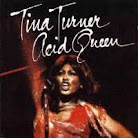 "I'd decided to be very British – I was wearing white gloves that day"."So I said : "So kind of you to let Tina do this. I’m so sorry you can’t came to because as you know there isn’t a part in this otherwise it would have been lovely". But I said : "I don’t want you to worry about anything, because we’re going to take really good care of her". "Well, he didn’t quite know how to react. I never asked his permission [to hire her] but thanked him when he hadn’t quite given it”. When I got back, of course, Robert said : "How did you get on ?" I said : "Well I can see why you didn’t go, because he wouldn’t have got her. She did it and she was brilliant" and didn't return to Ike.(link)
"I'd decided to be very British – I was wearing white gloves that day"."So I said : "So kind of you to let Tina do this. I’m so sorry you can’t came to because as you know there isn’t a part in this otherwise it would have been lovely". But I said : "I don’t want you to worry about anything, because we’re going to take really good care of her". "Well, he didn’t quite know how to react. I never asked his permission [to hire her] but thanked him when he hadn’t quite given it”. When I got back, of course, Robert said : "How did you get on ?" I said : "Well I can see why you didn’t go, because he wouldn’t have got her. She did it and she was brilliant" and didn't return to Ike.(link)
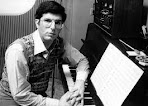
 In 1975 she was in the USA again : "I did a film called 'The Entertainer' (link) which was based on the John Osborne play and we shot it in a place called Santa Cruz which was near San Francisco and in Santa Cruz was this old village hall with a very battered piano and Marvin Hamlisch the composer came one morning, as we congregated there and said : "I’ve just written a song. Do you wanna hear it ?" And he played this song to Jack Lemmon and I and it turned out that it was 'Chorus Line'".(link) Her daughter Sue explained that when Jack was being filmed on an outside stage, the Director suggested that she walk on unannouced, while filming was going on and said : "Don't tell Jack and don't let him push you off the stage".(link) In connection to the production, she earned notoriety by persuading television networks to sanction the first use of the word “bastard” on terrestrial in the USA.
In 1975 she was in the USA again : "I did a film called 'The Entertainer' (link) which was based on the John Osborne play and we shot it in a place called Santa Cruz which was near San Francisco and in Santa Cruz was this old village hall with a very battered piano and Marvin Hamlisch the composer came one morning, as we congregated there and said : "I’ve just written a song. Do you wanna hear it ?" And he played this song to Jack Lemmon and I and it turned out that it was 'Chorus Line'".(link) Her daughter Sue explained that when Jack was being filmed on an outside stage, the Director suggested that she walk on unannouced, while filming was going on and said : "Don't tell Jack and don't let him push you off the stage".(link) In connection to the production, she earned notoriety by persuading television networks to sanction the first use of the word “bastard” on terrestrial in the USA.
Beryl said : "Quite a few people said (in her business) : "It's very difficult being a woman". I hadn’t thought about it really and I did have a cameraman once and he said : "I’ve never worked for a woman before" and he’d just come off something with Sam Spiegel and I said to him : "Well let’s give it a go and see how it is ". So after two or three days I said to him : "Well what do you think ?" So he said : "Well I think I it’s the same". And I said : "No it isn’t. I bet Sam Spiegel never kissed you when you came in, in the the morning".
By this time she had clearly defined her role : "The producer is the team leader who chooses the team – hopefully wisely – including the director. You somehow run the family well and everybody knows what their job is. You’re ultimately a creative enabler". When in disagreement with someone she said : "I'm not a shouter really. You just sort of look disappointed and may be, a bit terse". With regards to her position as a woman she said : "I’m not a great feminist. Feminism annoys me, to be honest. I think some women do have a tougher time, but I personally have never been held back because I was a woman, because it never occurred to me that that was a problem".



 Beryl said : “I began to lose confidence”. she recalled in a 2016 interview. “I thought : 'I can’t do it'. Then I happened to see a piece of paper on a desk. God must’ve put it there or somebody – some blurb from a publisher, and there was this book ‘Men Behaving Badly.’ I thought I’ll send off for that, it’s a funny title, it might be a film I read the book and then thought : 'It’s a TV series', that’s how it began”. I asked if I could meet the writer, so Simon Nye came and I said : "I think this would make a good television series and he said : "Well I’ve never written a television series". So I said ; "Well I’ve never produced one. So we’ll do it together".
Beryl said : “I began to lose confidence”. she recalled in a 2016 interview. “I thought : 'I can’t do it'. Then I happened to see a piece of paper on a desk. God must’ve put it there or somebody – some blurb from a publisher, and there was this book ‘Men Behaving Badly.’ I thought I’ll send off for that, it’s a funny title, it might be a film I read the book and then thought : 'It’s a TV series', that’s how it began”. I asked if I could meet the writer, so Simon Nye came and I said : "I think this would make a good television series and he said : "Well I’ve never written a television series". So I said ; "Well I’ve never produced one. So we’ll do it together".

 It started a series on ITV with Martin Clunes and Harry Enfield, (link) who only wanted to do one series and was replaced with Neil Morrisey.(link) Beryl was annoyed, to say the least, when ITV : "Decided that if a show got ten million it was really successful. Well, I got seven million. So they didn’t really want it. I thought : 'I know this has got potential'. So I went to the BBC’s and I spoke to Alan Yentob, who I’d never met and I said to him : "I think this has really got potential". So he said : "Well so do I, but I can’t really make that decision because we’ve got our new Head of Entertainment coming and I think that we should let him decide what he wants to do". So I met David and he said : "Well I’ve seen that. When do you want to start ?" He decided to put it on later, so we could be a bit ruder without upsetting the world and it just worked really well".
It started a series on ITV with Martin Clunes and Harry Enfield, (link) who only wanted to do one series and was replaced with Neil Morrisey.(link) Beryl was annoyed, to say the least, when ITV : "Decided that if a show got ten million it was really successful. Well, I got seven million. So they didn’t really want it. I thought : 'I know this has got potential'. So I went to the BBC’s and I spoke to Alan Yentob, who I’d never met and I said to him : "I think this has really got potential". So he said : "Well so do I, but I can’t really make that decision because we’ve got our new Head of Entertainment coming and I think that we should let him decide what he wants to do". So I met David and he said : "Well I’ve seen that. When do you want to start ?" He decided to put it on later, so we could be a bit ruder without upsetting the world and it just worked really well".


 Hartswood was now a family business with her daughters, Debbie and Sue, who was married to the writer Steven Moffat, now joining Hartswood Films from roles in film and TV production elsewhere. Moving into the new century The Moffat-Vertues partnership had success with two drama series transposing Victorian literary figures to the present day. 'Jekyll' (link) in 2007, starred James Nesbitt as Robert Louis Stevenson’s doctor with a split personality, while 'Sherlock' (link) from 2010-17, was an irreverent take on Arthur Conan Doyle’s detective, co-created by Steven Moffat and Mark Gatiss, with Benedict Cumberbatch as Holmes and Martin Freeman as Dr Watson with Benedict dubbing Beryl as “Sherlock’s Godmother”.
Hartswood was now a family business with her daughters, Debbie and Sue, who was married to the writer Steven Moffat, now joining Hartswood Films from roles in film and TV production elsewhere. Moving into the new century The Moffat-Vertues partnership had success with two drama series transposing Victorian literary figures to the present day. 'Jekyll' (link) in 2007, starred James Nesbitt as Robert Louis Stevenson’s doctor with a split personality, while 'Sherlock' (link) from 2010-17, was an irreverent take on Arthur Conan Doyle’s detective, co-created by Steven Moffat and Mark Gatiss, with Benedict Cumberbatch as Holmes and Martin Freeman as Dr Watson with Benedict dubbing Beryl as “Sherlock’s Godmother”.
Beryl said : "Sherlock was interesting because, commissioned to make a series, but then a new Controller (at the BBC) came in, called Ben Stephenson, who asked Mark and Steven to go and see him. So he said : "I’ve seen the series and he said it’s very good and it’s the wrong way to do it". He said : "'Sherlock' is 'Event Television'. So stop doing that and go off and make three 90s (minutes)".That was amazing and of course he was right, because you could really get going with. The casting of that was interesting. Benedict was someone that Sue and Steven had seen in a film called 'Atonement' and said he might be quite good to audition for Sherlock, which he came to my flat and did. We didn’t see anybody else. Just blew us away. I think it’s a wonderful series. I think all credit to the artists and the writers they’ve done so well with it".(link)
(L to R) Mark Gatiss, Benedict Cumberbatch, Martin Freeman, Sue Vertue, Beryl, and Steven Moffat of Sherlock Holmes pose in front of the winners boards at the Philips British Academy Television Awards in 2011.
When it came to her role in the company and the youngsters took on more responsibility, she said : "I’m 'Chairman'. The man in the office sat down and said : "What do you want to be ? Do you want to be Chairman ? Chairwoman ? Chair Lady ?" So I said : "I don't want to be 'Chair Lady' because it sounds like the 'Charlady'. I don’t want to be 'Chairwoman', because it sounds pretentious. I’d like to be 'Chairman'. I’m not very keen on all this feminism lark really. Just get on and stop fussing".
Beryl distilled herself when she said :
"I’m quite calm, I’m not a shouter – I can’t bear people who keep screaming. I think I’m quite caring about people and I’m loyal to people and all of that buys you back loyalty from them, caring back from them, kindness back from them. It’s quite catching".
* * * * * * * * *
And making it all worthwhile : my tweet :
And your replies :
DavidGArnold : wonderful.
K-smudged : This is a delightful, eye-opening insight into Beryl Vertue's life and work. What a gal ...
David Absalom : Fascinating ! You've done a lovely job.
Hayden Wright : Wonderful tribute to the legendary Beryl Vertue.
Richard Lee : It was a well done tribute to her. I did not know about the Stiggy connection.
Margaret Jones : Loved this, John. Fantastic story.
Mark Bussell : Nice tribute to Beryl Vertue and her amazing career in television.
Trevor Lambert : Thank you for sharing. I was going to have a quick look now but this is worthy of settling down with a biccie and a cuppa alongside !
Patricia Farrell : Thank you. Quite a life.
Elleneff : Love it. Fair play.
Fred Long : That's a brilliant read, brought back million memories.
Rob Morris : Really good post ! Thank you for that !
Debbie Haden : Such an interesting read. Thank you.
EDWARD : Very moving. Thank you for sharing.
Mike Cooper : This is great ! Thanks for sharing. Ms. Vertue's life would make for a good TV show itself !
richardmarson : Wonderful. "Just get on and stop fussing ...."
Claire Lees Ingham : Fascinating. Thank you !
Ben : Fantastic post about the life of legendary TV producer Beryl Vertue. Her story is even more remarkable than I knew.
Bob Golding : This is fantastic. What a gorgeous tribute and what a life !
Maggie Brown : Fine detailed tribute to outstanding TV producer and business pioneer Beryl Vertue who enabled so many great shows and careers of top writers that entertained millions.
#BlackLivesMatter : Brilliantly done.
Vintage Obscura Radio : What a wonderful tribute !
Michael Geary : This is beautiful. I am (veeerry Distantly related to Terry nation and the part she played in his life is amazing !
Gareth Brownbill : That's brilliant !
Paul Carnahn : This is really excellent - a great tribute to one of UK entertainment's unsung titans.
HevTheNHs : A damn fine read and wonderful, comprehensive look at one of the UK's top producers.
edthepenguin : Ah, wonderful !
Ruth Starr Hays : Just wonderful.
Paul Rose : Very enjoyable read. Thank you John.
Mike Haskins. Thanks for this It's really good.
Sheila Fell : Fabulous.
Adrienne Aiken : Oh my goodness ! My dinner got cold as I was compelled to read what you wrote ! A wonderful article. Thank you.
Canberwell Hattie : That's a gem ! I'd heard of Beryl & knew more or less what she did but I had no idea what an amazing life she had.
Greg Haiste : A lovely tribute to an amazing person.
Donald Steel : A lovely piece. The story of an amazing life. I walked along to 130 Uxbridge Road in Shepherds Bush after I read it. Amazing to think that this was one of the homes of great British comedy. Blue plaque time ?




 Alan and Ray had formed had formed a company, 'Associated London Scripts', with the comics, Eric Sykes and Spike Milligan and contacted her because they were looking for a secretary. Beryl, still recovering from TB, was working for a local insurance company in Eltham and did not fancy an hour-long trolleybus ride to work, but she eventually did agree to go for an interview. On the day of her interview made her way to the writers' commune called 'Associated London Scripts', housed in offices over a greengrocer's shop at 130 Uxbridge Road in Shepherd's Bush. She could see the quartet of writers were in dire need of administrative help. The offices were in a mess, ringing telephones going unanswered, papers were being mislaid and most importantly, cups of tea were remaining unmade.
Alan and Ray had formed had formed a company, 'Associated London Scripts', with the comics, Eric Sykes and Spike Milligan and contacted her because they were looking for a secretary. Beryl, still recovering from TB, was working for a local insurance company in Eltham and did not fancy an hour-long trolleybus ride to work, but she eventually did agree to go for an interview. On the day of her interview made her way to the writers' commune called 'Associated London Scripts', housed in offices over a greengrocer's shop at 130 Uxbridge Road in Shepherd's Bush. She could see the quartet of writers were in dire need of administrative help. The offices were in a mess, ringing telephones going unanswered, papers were being mislaid and most importantly, cups of tea were remaining unmade.
 Spike was the chief creator and main writer was of the BBC Radio 'Goon Show' (link) where with Peter Sellers and Harry Secombe, his scripts mixed ludicrous plots with surreal humour, puns, catchphrases and an array of bizarre sound effects. Beryl typed the scripts for the Show from 1951-60 and said : "I used to go to the Goon Show recordings which were in Camden Town on Sundays. Wonderful Wonderful - watching Peter Sellers doing 'Minnie' - waving his throat. Just so funny. So talented. So I think I've been lucky having all that experience".(Left to right : Harry, Michael Bentine, Spike and Peter)
Spike was the chief creator and main writer was of the BBC Radio 'Goon Show' (link) where with Peter Sellers and Harry Secombe, his scripts mixed ludicrous plots with surreal humour, puns, catchphrases and an array of bizarre sound effects. Beryl typed the scripts for the Show from 1951-60 and said : "I used to go to the Goon Show recordings which were in Camden Town on Sundays. Wonderful Wonderful - watching Peter Sellers doing 'Minnie' - waving his throat. Just so funny. So talented. So I think I've been lucky having all that experience".(Left to right : Harry, Michael Bentine, Spike and Peter)




























